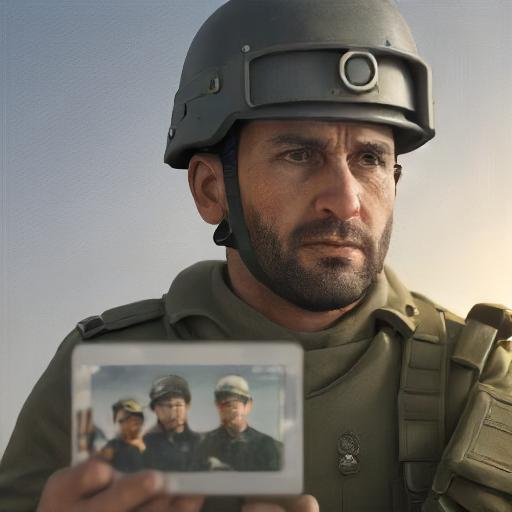The Soldier’s Dilemma: Split Loyalties – Maintaining Relationships from the Front
The Soldier’s Dilemma: Split Loyalties – Maintaining Relationships from the Front
Getting that call up, receiving your Tzav 8 – while maybe an honor and something you wouldn’t trade for the world, the call of duty is a heavy load. At the times when gunfire fades into the background and the dust settles, you are allowed some headspace to lament over the struggle of balancing your commitment to your country with the cost to your loved ones.
Coming home feels like stepping into a different universe. But both on the front lines and back at home, you’re grappling with a whirlwind of emotions. The guilt of not being able to be the ever-present partner you would like to be can eat away at you. On the flipside, the horrors of the battlefield can leave you emotionally distant, struggling to connect with your loved ones when you have the chance. On top of all this, you may battle with feelings of isolation, knowing that your experiences are impossible to fully convey to those who haven’t walked in your shoes.
Whether your relationship is just getting off the ground or decades old, insufficient and infrequent communication can leave you feeling as if you’re starting from scratch every conversation. Instead of enjoying the support and comfort of a secure relationship during a difficult time, you can only find the time to worry about damage control.
Here are some strategies for bridging this gap:
– Realistic Expectations: Insisting on maintaining a sense of “normalcy” at home during wartime does no favors to anyone. Accept that there is a new normal for now, and give yourself grace in navigating what that entails. You can’t always be fully present, but this new reality is temporary. It too shall pass. For now, your best is more than enough.
– Refocusing on Gratitude: Frustrations about circumstances beyond our control are the most natural things in the world- but they’re not productive. Challenge yourself to counter every frustration about what could have been if not for the war with an attitude of gratitude. Recognize the blessings in your life, including having a partner to navigate this journey with, even if it is not always simple. You will love, you will lose, you will disappoint and be disappointed. Relationships can be messy, but they remind us of our humanity. By forcing your frustrations through this lens of gratitude, you will find more room in your heart for the complexity of it all.
– Reframing: Every sacrifice made in service to your country contributes to a better future for your loved ones as well, solidifying the bonds that hold you together. This is not a time when your relationship is “on pause”, rather it is a period where the investments you make in your future together look a little different.
– Find Someone To Talk To: If there are experiences or thoughts you feel unable to share with your partner, find someone else to confide in. Don’t insist that everything is fine, it’s not. That doesn’t mean you owe your partner conversations you don’t feel would be helpful to have. But whenever possible, keep your partner in the loop. Let them know that you are prioritizing your own mental well being even if parts of that don’t always include them. Secrets or hidden feelings are an additional stress neither of you need right now.
– Be Open About Your Needs: Don’t push yourself to stick to plans or commitments if
you’re not feeling up to it. The biggest gift you can give your partner is being open about where you stand and how you’re coping. This fosters a sense of security in the relationship, making them feel trusted and the relationship stable, even if quality time looks different than it did before the war.
– Spiritual Connection: Knowing that Hashem is above you can give you a feeling of being held. Knowing that you aren’t in control can help you to let go and not feel the need to be in the driver’s seat. Embrace the fact that both you and your partner are dedicating yourselves to causes and beliefs that you share.
While your circumstances are uncertain and beyond your control, your relationship doesn’t have to be. As a nation, we are all behind you and deeply indebted to the sacrifices made on our behalf. These strategies are here to help make sure your relationship with the ones that matter most isn’t one of them.
Does Love Really Conquer All? Navigating the Challenges of a Partner on the Front Lines
Does Love Really Conquer All? Navigating the Challenges of a Partner on the Front Lines
Pop culture loves to romanticize the idea of heartfelt letters sent to partners at war and tokens of love carried in helmets and boots. But after eight months in this new reality, we know it’s far from glamorous.
Let’s be real – maintaining a normal routine can seem impossible when every alert on your phone or knock on the door sends your heart rate through the roof. While your partner is away and in danger, your days at home feel like a never-ending anxiety marathon. Sleep? What’s that? Eating? Only if stress counts as a food group.
You may feel like you’re living on a different planet from everyone else, pulling away from friends and family who just don’t get it. The guilt of enjoying anything while someone you care for is in harm’s way might make you ditch activities you once loved. And the relationship? It can feel like you’re stuck in a perpetual long-distance limbo, constantly hitting the reset button. Frustration is natural when your partner can’t be there for you, even though you understand why.
Supporting a partner in the military requires immense patience and compassion, which can be draining alongside maintaining a normal routine without their help. Here are some common obstacles to be aware of:
– Trauma: A soldier may overshare, leaving you overwhelmed, or undershare, leaving you both feeling disconnected.
– Compassion Burnout: The relationship can start to feel like a one sided game of emotional tug-of-war – one partner pulling all the emotional weight, while the other may barely have the strength to hold on to the rope. The imbalance long term will make the former feel exhausted and unsupported, no matter how much you may accept the crazy nature of the circumstances.
– Disjointed Communication: You may seek support elsewhere, in the efforts to not add anything more to the plate of your partner. Conversely, your soldier may do the same in efforts to avoid burdening you with even more emotional baggage. Both of you think you’re helping, but this can be misinterpreted as a lack of interest or reliability. In reality, it deprives you both of the opportunity to support each other during a difficult time, creating even more tension than what you were trying to avoid.
Throughout these serious challenges, you’ve made it this far together, and that’s no small feat. Here are some strategies to help strengthen that momentum:
– Let Your Soldier Be There For You: Keep the relationship warm by letting your partner support you in small ways. Resist the idea that now isn’t the time to express your needs or worries. Sure, now is the time to be be more understanding of your partner’s imperfections, but expressing your concerns about things your partner can reasonably do differently to better support you creates opportunities for reassurance and connection. This keeps the relationship warm and loving.
– Regaining Control: Any sense of control you can muster will make coping easier. Approach your days with the intention of accepting the limitations on communication and connection, rather than resigning to them. Make the decision to use time apart as productively and positively as you can manage. Assume your partner is safe unless you hear otherwise. Limit news consumption by setting specific times for updates. Engage in
calming activities when overwhelmed, like exercising or cooking, to regain a sense of control.
– Seek Support: It’s a mistake to think that matching your partner’s heroics means that you need to do this alone. Don’t wait until you’re breaking down to seek support from friends, family, and a therapist. This is a rational, mature decision that is done in the service of your ability to be healthy and functional.
– Practice Self Care: Eat well, exercise, and do things that bring you joy. Maintain your ability to be present and productive in your daily routines. It may feel uncomfortable to attempt and enjoy yourself while others who are dear to you cannot. But it is no service to anyone if you’re running on empty. Do what you need to maintain your ability to support yourself and others, see self-care as part of your service.
– Spiritual Connection: Knowing that Hashem is above you can give you a feeling of being held. Knowing that you aren’t in control can help you to let go and not feel the need to be in the driver’s seat.
Hollywood often paints war and trauma as experiences that strengthen relationships, but we understand that reality is more complex. It’s okay if this time doesn’t automatically deepen your bond. However, it can still be a period of growth for your relationship, albeit in unexpected ways. Redefining your limits, and embracing newfound flexibility and empathy are all extraordinarily difficult, but they are the things that will enable you to navigate this challenging time together. By supporting each other and nurturing yourselves both as individuals and as partners, you can emerge stronger and more connected than ever before.

